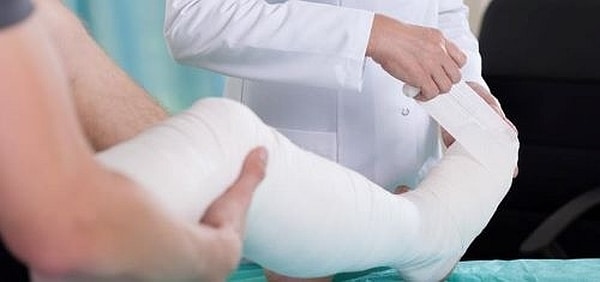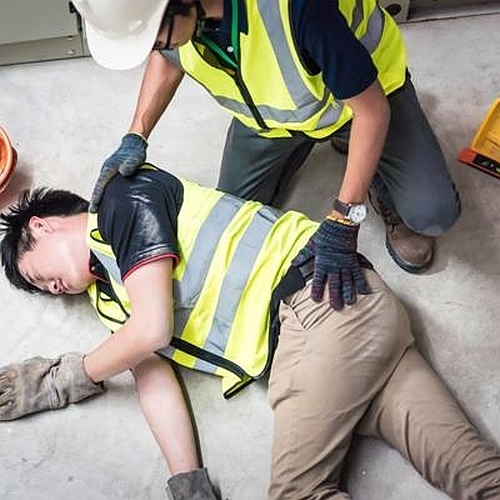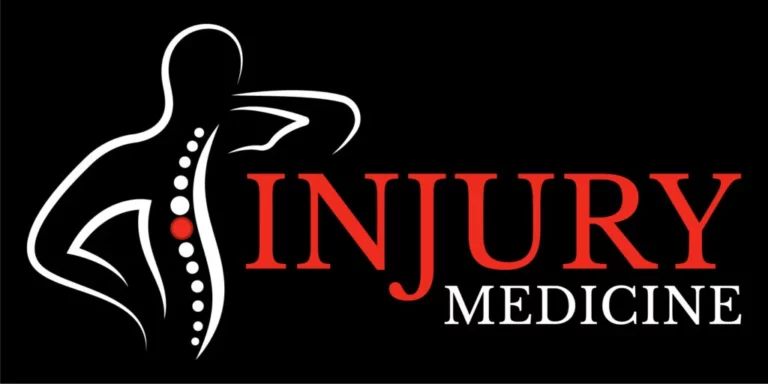- Diagnostic Imaging
Did you know that low back pain is the most common cause of disability? This condition can be difficult to diagnose because there are many causes of back pain. This is due to the fact that most diagnostic tests give inaccurate results. A lumbar discography can improve your chances of a correct diagnosis and treatment.
This outpatient treatment is usually provided by spine-health specialists and takes less than an hour. Your doctor will be able to identify the cause of your pain after the test. This will allow them to create a treatment plan that targets the problem.
Do you have persistent back pain? To understand the true nature of your condition, a lumbar discography may be necessary in Greenville, SC. This article will provide all the information you need about this diagnostic procedure.
If you would like more information on how receiving treatment for your injuries affects your case, view this page
What Is Discography?
Degenerative disc disease, or internal disc damage, can be caused by fissured or damaged spinal discs. This is usually caused by injury or aging and can lead to back pain, which may reach the buttocks and thighs.
This pain is very similar to what you will feel if you have sacroiliac dysfunction or facet syndrome. This makes it difficult to diagnose and treat these conditions, especially if you only have MRI, medical history, and physical exam.
Discography is an imaging procedure that evaluates back pain in order to determine whether it is caused by spinal disc damage. It is a test that can be used to distinguish between back pain caused by damaged discs and other conditions. This test is often used by doctors along with other tests like CT scans or MRIs to confirm a diagnosis.
The history of discography, also called a discogram, dates back to the 1940s when doctors first used it for diagnosing back pain-causing lesions.
When Do Doctors Recommend a Discogram?
Discography is commonly used to distinguish between back pain caused by damaged discs and other conditions.
Discography, although a minimally invasive procedure that can be done to assess back pain, is not usually the first test doctors perform. They will recommend discography only after other treatments have failed to provide relief.
Before performing a spinal fusion, doctors may recommend a lumbar discography. This allows them to determine the disks they need to remove.
How to Prepare for Lumbar Discography in Greenville (SC)
Your doctor might advise you to avoid blood thinners while getting ready for your lumbar discography. Your doctor will also tell you what medication you need to take in preparation for the test. Patients undergoing lumbar discography should not consume water or eat breakfast before the procedure.
Before you attempt this procedure, it is important to mentally prepare yourself. Before agreeing to this procedure, make sure you research your concerns from qualified and reputable sources.
During the interview, tell your doctor about your concerns. They will answer all of your questions and provide accurate information to assist you in making informed decisions.
What to Expect During a Lumbar Discography
Here are some things to consider when you opt to have a discography performed.
Physical Assessment and History
The history and physical exam is the first stage of lumbar discography in Greenville. This stage is where a healthcare professional interviews you and reviews your medical history in order to assess your health.
This is a crucial stage that ensures they have all the information necessary to give you the best possible care. In this first phase, the doctor will provide you with all details regarding your procedure.
Initial Preparation
Your discographer will administer sedatives to help you relax if you consent to lumbar discography. This is not a requirement as many doctors won’t give you sedatives in order to minimize any discomfort. To reduce the risk of infection, your discographer might also recommend antibiotics.
If you require intra-procedural medication, the discographer will likely start an intravenous needle before the procedure. The next step is to lie down on your stomach or side on a table. The doctor will then position an X-ray unit (fluoroscopic) and mark your back using ink. These markings will indicate which disc spaces need to be examined.
After thoroughly cleaning your back, your discographer will apply sterile drapes to your back. Your discographer will also use sterile drapes to cover the fluoroscope.
The Procedure
The doctor will first administer a numbing shot to relieve the pain caused by the discogram needle. The doctor will then monitor the discogram needle’s progress through your body using a fluoroscope. This allows them to place the needle precisely and safely into the disc.
Your doctor will then inject contrast dye into your disk. Then, he or she will check to see if the dye spreads by using an X-ray or CT scan. The dye will remain in the middle of a normal disk, but it will spread to the edges of worn-out disks. This could be the cause of your back pain.
During this procedure, you may feel pressure or pain. Pain indicates that your lower back pain is caused by the disk being examined. Normal disks will not produce any pain when examined.
Post-Procedure
After the procedure, you will be under observation in the procedure room for approximately an hour. If there are no complications, you can leave the procedure room. Driving yourself is dangerous and you will need someone to drive you home.
Some patients feel pain several hours after their procedure. This is normal.
Ice packs can be applied to the area every 20 minutes to ease the pain. If you have severe back pain or a fever, it is important to call your doctor immediately.
Your doctor will then review your medical history and take photographs. This will help them determine the best treatment plan for you.
Are There Any Risks Associated With a Discogram?
A discogram can pose risks and complications.
- Disc space infection (a rare condition)
- Chronic back pain can be more severe
- Injury to the blood vessel or spinal nerve
- Allergy to dye
To minimize the risk of complications, a qualified discographer will carefully manage your condition.
Do You Need a Lumbar Discography? Call Injury Medicine Today!
Are you suffering from chronic lower back pain for some time? You can start the road to recovery by getting a proper diagnosis. Injury Medicine’s experienced discographers can help you relieve pain and restore your body to normal function. For more information about how we can assist, call us today.





